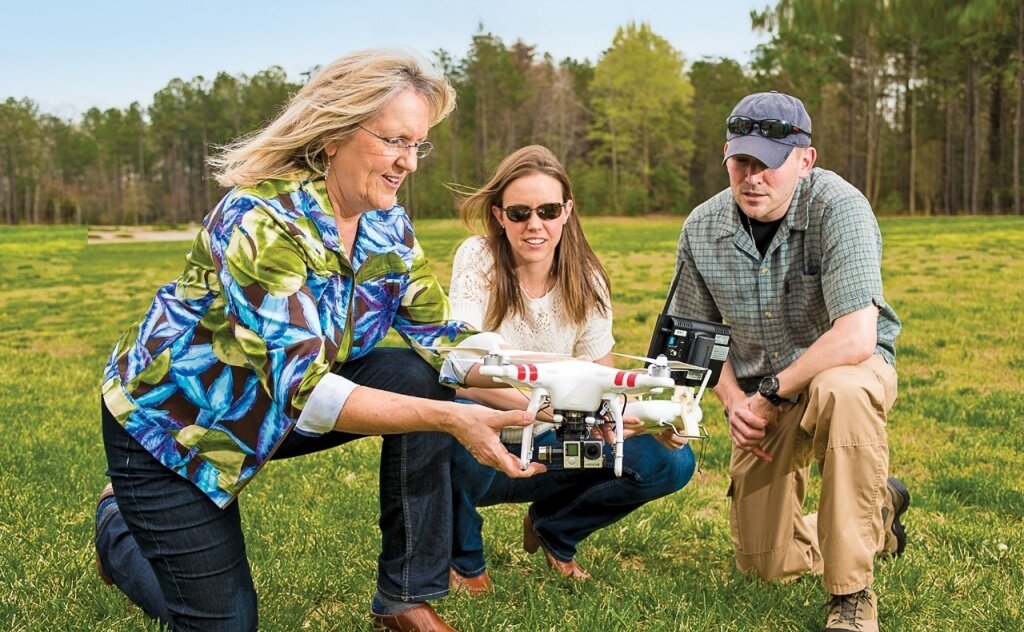Thanks to a grant from the National Science Foundation’s Advanced Technological Education program, the Geospatial Technician Education-Unmanned Aircraft Systems project at Virginia Tech is one step closer to offering Virginia’s community college students training on operating small unmanned aircraft systems (UAS), the university has announced.
John McGee, a professor in Virginia Tech’s College of Natural Resources and Environment and a Virginia Cooperative Extension geospatial specialist, has worked alongside the Virginia Space Grant Consortium and the Virginia Community College System on expanding geospatial technician education at the community-college level for almost nine years. Now, says Virginia Tech, emerging technology has led to changing goals for the organization.
“Unmanned aircraft are facilitating data acquisition efforts. These aircraft are transforming how industries do business,” McGee says in a university press release. “There’s a lot of activity in this field in Virginia already. We want to make sure that Virginia’s workforce is well poised to meet emerging industry needs.”
To ensure that Virginia’s community college students have the knowledge and skills necessary to use the expanding technology, McGee and the Virginia Space Grant Consortium have partnered with faculty from Thomas Nelson, Mountain Empire and John Tyler community colleges to develop a curriculum chart that will help community college instructors establish new courses.
The curriculum chart maps the skills and knowledge that students will need into categories such as flight planning, maintenance and safety. Educators can then begin to develop course objectives and goals that will shape how various courses are organized.
“We’re providing educators with a curriculum roadmap that they can use to enhance existing courses, create new courses and support sUAS certificate programs,” McGee explains. “These courses and programs will be a natural fit for students entering an array of industries, including natural resources conservation, agricultural technology, engineering, public safety, computer programming, and information technology.”
McGee expects that students could see the UAS courses in Virginia’s community college system within the next year.
According to Chris Carter, deputy director of the Virginia Space Grant Consortium, the neew UAS curriculum chart is only the first step in the latest Geospatial Technician Education initiative.
In summer 2017, Virginia Tech will host a weeklong professional development session for community college faculty who are interested in teaching UAS courses. Faculty will team up with mentors from the Geospatial Technician Education project to learn the best ways to teach sUAS courses to their students, explains Virginia Tech.


 Categories :
Categories : 

